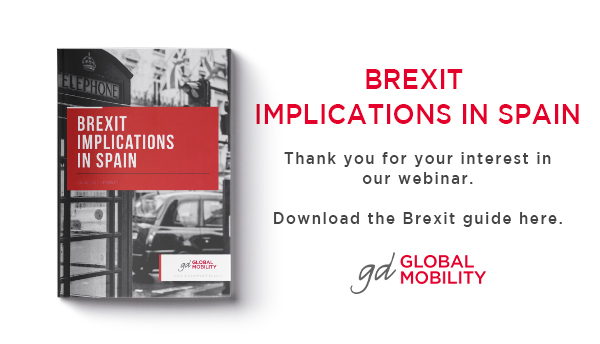
Owning property, shares or engaging in professional activity in Spanish territory will generate a series of tax obligations that GD Global Mobility can help you with.
Taxation of income obtained by a non-resident
As a general rule, taxpayers considered non-tax residents in Spain will be subject to taxation only for income obtained in Spanish territory, notwithstanding any provisions included in double taxation agreements signed with Spain.
This means a declaration must be submitted for each income obtained in Spain, using Model 210.
The general tax rate applicable to non-residents in Spain is 24%. The applicable rate for residents of an EU/EEA member country is 19%.
Income from work
If a non-resident has obtained income for personal activity carried out in Spanish territory, it will be considered as income from Spanish sources, and so will be subject to tax in Spain at the rate of 24% (or at 19% for residents of an EU/EEA member country).
Income from real estate
If you are non-resident and have property in Spain, you will have tax obligations to meet depending on the property's circumstances:
- If it is leased. The income obtained from the lease of said property, will give rise to the obligation to submit Model 210 on a quarterly basis, with the possibility of deducting the expenses incurred as a result of the lease from the gross income, only if you are a resident of an EU/EEA member country.
- If it is not being leased. This will need to be declared through a Model 210 under the income imputation regime. In the event that it has not been leased for only part of the year, the income may be prorated for the time in which the property has been empty.
Income from investments
For example, interest, dividends and other income derived from investments in funds pertaining to entities resident in Spain. The applicable tax is 19%. However, tax regulations provide for some exemptions such as those with regards to interest.
Earnings from equity
Capital gains and losses are the variations in the value of the taxpayer's assets that are shown when their composition is altered in any way. This income may be subject to Non-Resident Income Tax (IRNR) when:
- It is derived from securities issued by persons or entities resident in Spanish territory.
- It is derived from personal property, other than securities, located in Spanish territory or from rights that must be fulfilled or exercised in Spanish territory.
- It directly or indirectly comes from real estate located in Spanish territory or from rights related to it.
Deadlines for submission
The deadline for submission and, where appropriate, payment, will depend on the type of income declared:
- Income derived from real estate transfers: self-assessments of income derived from real estate transfers should be presented within three months, from one month after the date of transfer of the accrual date of the real estate.
- Imputed income from real estate located in Spanish territory: the deadline for submission and payment is before December 31 of the year following the accrual date.
- Other income:
1. Self-assessments with a result to be paid: the deadline for presentation and payment is the first twenty calendar days of the months of April, July, October and January, in relation to income whose accrual date is included in the previous quarter of the calendar.
2. Self-assessments with zero result: the deadline for submission will be from January 1 to 20 of the year following the accrual of the declared income.
3. Self-assessments with a result to be returned: shall be presented as of February 1 of the year following the accrual of the declared income and within a period of four years.





